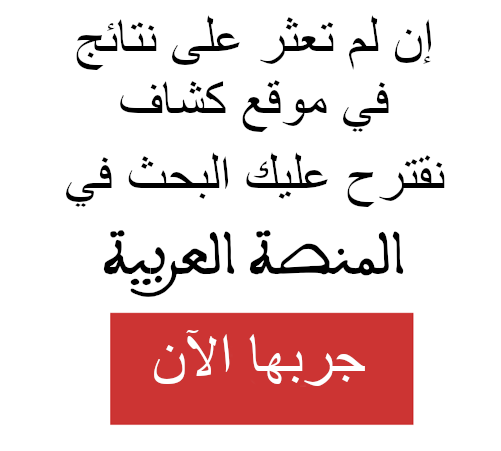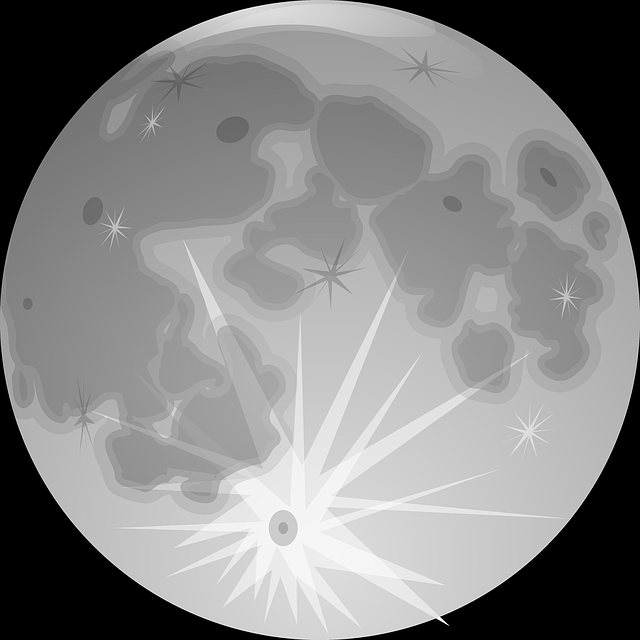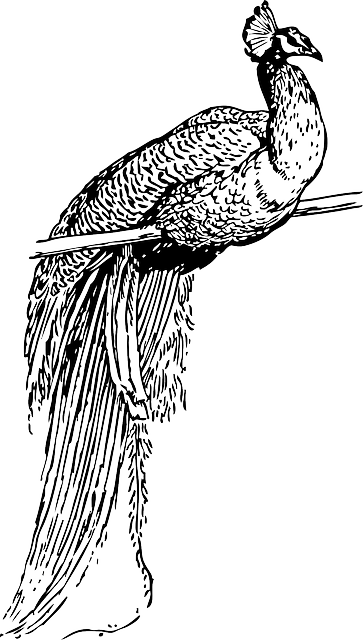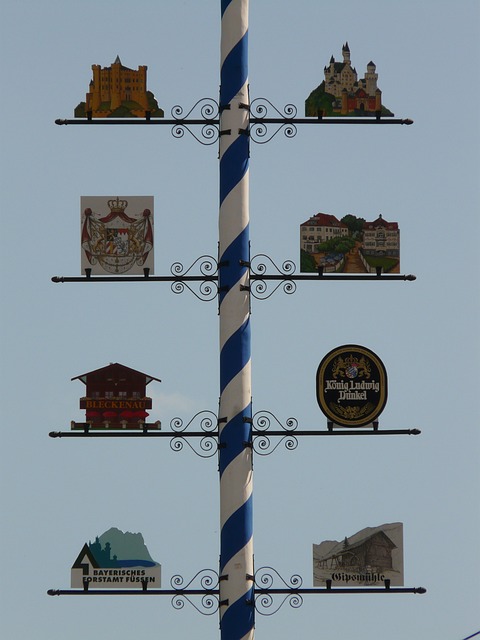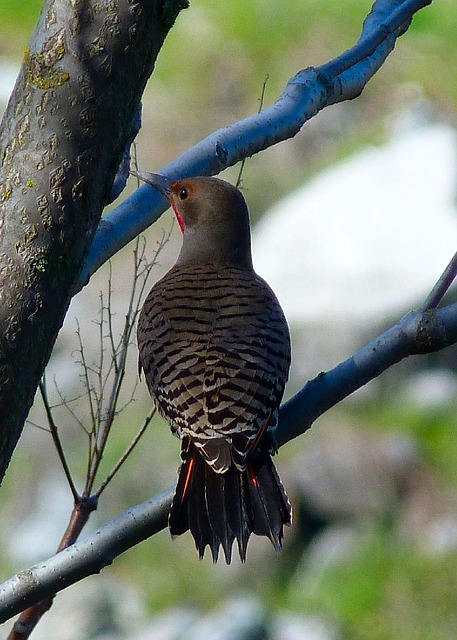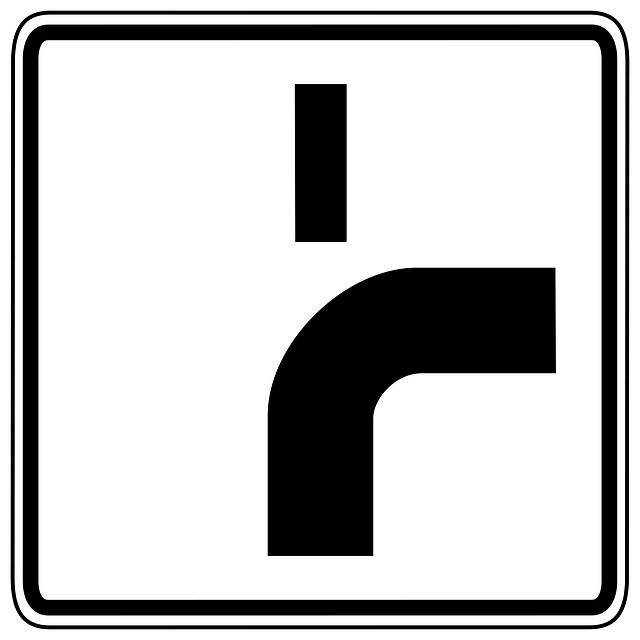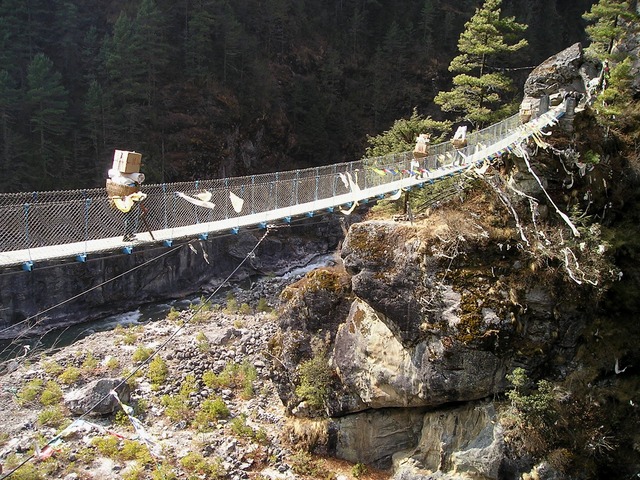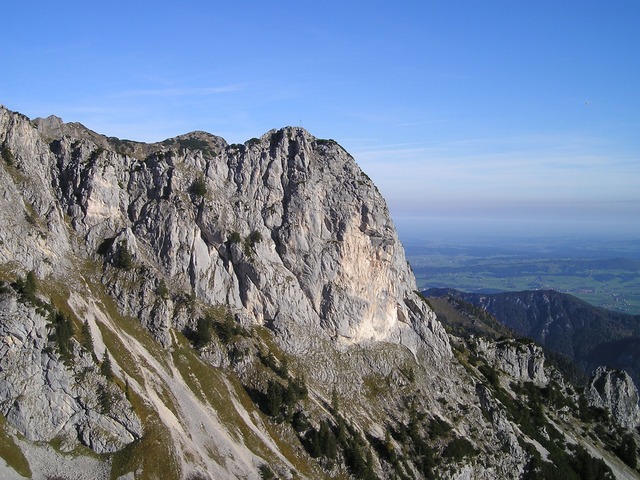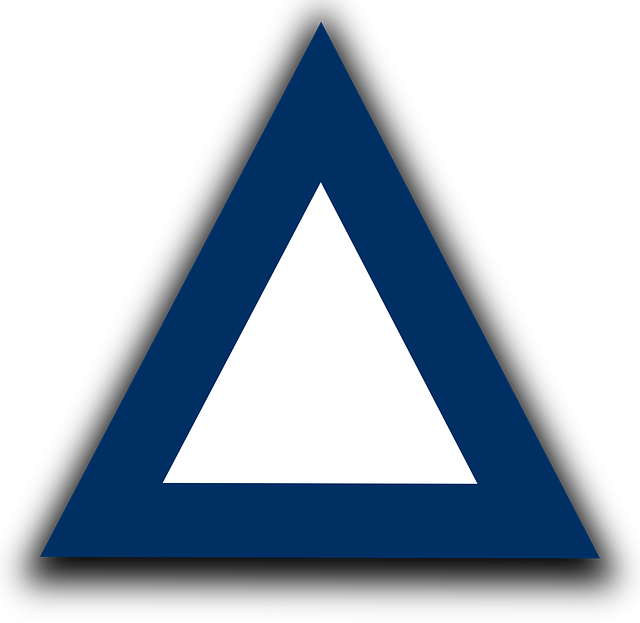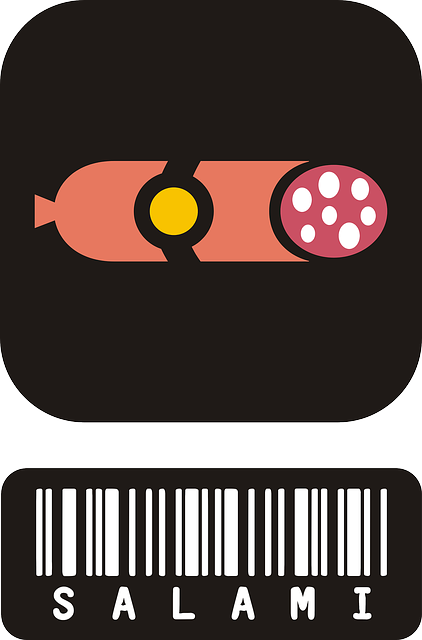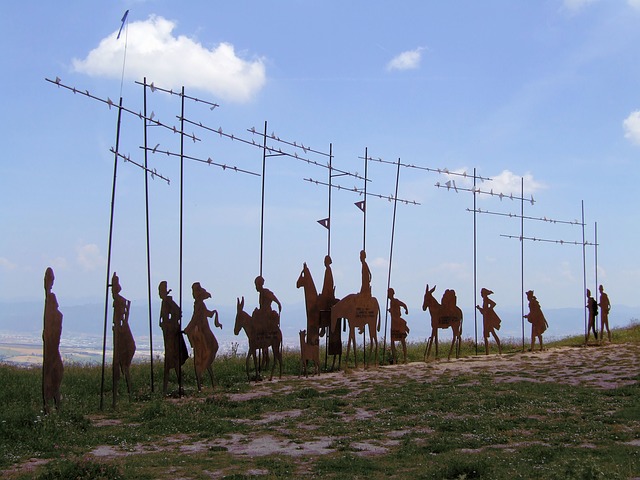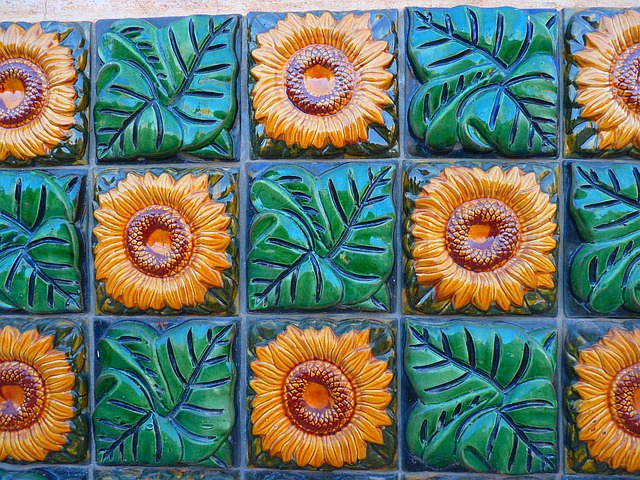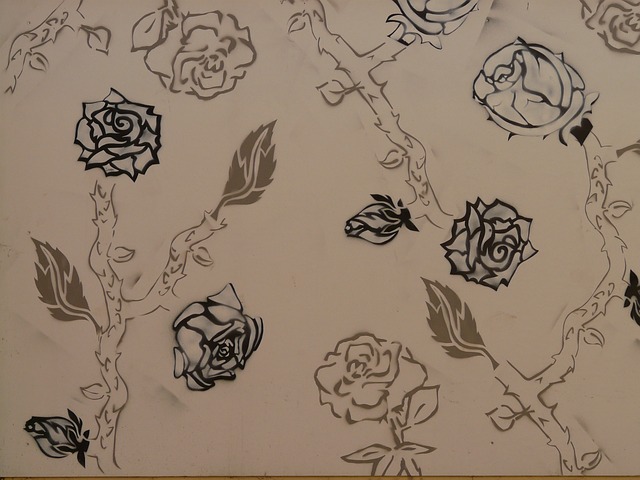عقد 2000

|
عقد 2000 أوالألفينات كان العقد الذي بدأ في 1 يناير 2000 وانتهى في 31 ديسمبر 2009. إنه العقد الذي بدأ فيه جميع من القرن 21 والألفية الثالثة.
السياسات والحروب
The War on Terror and War in Afghanistan began after the September 11 attacks in 2001. The International Criminal Court was formed in 2002. A United States-led coalition invaded Iraq, and the Iraq war led to the end of Saddam Hussein's rule as Iraqi President and the Ba'ath Party in Iraq. Al-Qaeda and affiliated Islamist militant groups performed terrorist acts throughout the decade. These acts included the 2004 Madrid train bombings, 7/7 London bombings in 2005, and the Mumbai attacks related to al-Qaeda in 2008. The European Union expanded its sanctions amid Iran's failure to comply with its transparency obligations under the Nuclear Non Proliferation Treaty and UN resolutions.
The War on Terror generated extreme controversy around the world, with questions regarding the justification for U.S. actions leading to a loss of support for the American government, both in and outside the United States. Additional armed conflict occurred in the Middle East, including between Israel and Hezbollah, then with Israel and the Hamas. The greatest loss of life due to natural disaster came from the 2004 tsunami, killing around a quarter-million people and displacing well over a million others. Cooperative international rescue missions by many countries from around the world helped in efforts by the most affected nations to rebuild and recover from the devastation. An enormous loss of life and property value came in 2005, when Hurricane Katrina flooded nearly the entire city of New Orleans. The resulting political fallout was severely damaging to the George W. Bush administration because of its perceived failure to act promptly and effectively. In 2008, Barack Obama was elected President of the United States and became the first African-American U.S. president when he succeeded Bush in 2009.
الهجمات الارهابية
The most prominent terrorist attacks committed against civilian population during the decade include:
- هجمات 11 سبتمبر 2001 في مدينة نيويورك، واشنطن دي سي، وشانكسڤيل، پنسيلڤانيا، (2.996 قتيل)
- هجمات الجمرة الخبيثة 2001 في الولايات المتجدة (5 قتيل، 17 مصاب)
- تفجيرات بالي 2002 في بالي، إندونسيا (202 قتيل )
- تفجيرات إسطنبول 2003 في إسطنبول، هجريا (57 قتيل)
- تفجيرات قطار مدريد 2004 (192 قتيل)
- أزمة رهائن مدرسة بلسان 2004 (334 قتيل)
- تفجيرات لندن 2005 (56 قتيل)
- 2007 Yazidi communities bombings (796 قتيل)
- هجمات مومباي 2008 (175 قتيل)
حروب
أبرز النزاعات المسلحة في هذا العقد، وتضم:
حروب دولية
-
War on Terror (2001–present) – refers to several ideological, military, and diplomatic campaigns aimed at putting an end to international terrorism by preventing groups defined by the U.S. and its allies as terrorist (largely Islamist groups such as al-Qaeda, Hezbollah and Hamas) from posing a threat to the U.S. and its allies, and by putting an end to state sponsorship of terrorism. The campaigns were launched by the United States, with support from NATO and other allies, following the September 11, 2001 attacks that were carried out by al-Qaeda. Today the term has become mostly associated with Bush administration-led wars in Afghanistan and Iraq.
- War in Afghanistan (2001–present) – In 2001, the United States, the United Kingdom, Italy, Spain, Canada and Australia invaded Afghanistan seeking to oust the Taliban and find al-Qaeda mastermind Osama bin Laden. In 2011, the US government claimed Navy Seals had killed Bin Laden and buried his body at sea. Fatalities of coalition troops: 1,553 (2001 to 2009).
- Iraq War (2003–2011) – In 2003, the United States, the United Kingdom, Spain, Australia and Poland invaded and occupied Iraq. Claims that Iraq had weapons of mass destruction at its disposal were later found to be unproven. The war, which ended the rule of Saddam Hussein's Ba'ath Party, also led to violence against the coalition forces and between many Sunni and Shia Iraqi groups, and to al-Qaeda operations in Iraq. Casualties of the Iraq War: 110,600 violent deaths, March 2003 to April 2009. Saddam was eventually sentenced to death and hanged on December 30, 2006.
-
Arab–Israeli conflict (Early 20th century–present)
- 2006 Lebanon War (summer 2006) – took place in southern Lebanon and northern Israel. The principal parties were Hezbollah paramilitary forces and the Israeli military. The war that began as military operation in response to the abduction of two Israeli reserve soldiers by the Hezbollah, gradually strengthened and became a wider confrontation.
-
Israeli–Palestinian conflict (Early 20th century–present)
- Second Intifada (2000–2005) – After the signing of the Oslo Accords failed to bring about a Palestinian state, in September 2000 the Second Intifada (uprising) broke out, a period of intensified Palestinian-Israeli violence, which has been taking place until the present day. As a result of the significant increase of suicide bombing attacks within Israeli population centers during the first years of the Al-Aqsa Intifada, in June 2002 Israel began the construction of the West Bank Fence along the Green Line border arguing that the barrier is necessary to protect Israeli civilians from Palestinian terrorism. The significantly reduced number of incidents of suicide bombings from 2002 to 2005 has been partly attributed to the barrier. The barrier's construction, which has been highly controversial, became a major issue of contention between the two sides. The Second Intifada has caused thousands of victims on both sides, both among combatants and among civilians – The death toll, including both military and civilian, is estimated to be 5,500 Palestinians and over 1,000 Israelis, as well as 64 foreign citizens. Many Palestinians consider the Second Intifada to be a legitimate war of national liberation against foreign occupation, whereas many Israelis consider it to be a terrorist campaign.
- 2008–2009 Israel–Gaza conflict – the frequent Hamas Qassam rocket and mortar fire launched from within civilian population centers in Gaza towards the Israeli southern civilian communities led to an Israeli military operation in Gaza, which had the stated aim of reducing the Hamas rocket attacks and stopping the arms smuggling into the Gaza Strip. Throughout the conflict Hamas further intensified its rocket and mortar attacks against Israel, hitting civilian targets and reaching major Israeli cities Beersheba and Ashdod for the first time. The intense urban warfare in densely populated Gaza combined with the use of heavy firepower by the Israeli side and the intensified Hamas rocket attacks towards populated Israeli civilian targets led to a high toll on the Palestinian side and among civilians.
- The Second Congo War (1998–2003) – took place largely in the Democratic Republic of the Congo. The widest interstate war in modern African history, it directly involved nine African nations, as well as about twenty armed groups, and earned the epithet of "Africa's World War" and the "Great War of Africa." An estimated 3.8 million people died, mostly from starvation and disease brought about by the deadliest conflict since World War II. Millions more were displaced from their homes or sought asylum in neighboring countries.
- 2008 South Ossetia war – Russia invaded Georgia in response to Georgian aggression towards civilians and attack on South Ossetia. Both Russia and Georgia were condemned internationally for their actions.
- The Second Chechen War (1999–2000) – the war was launched by the Russian Federation on August 26, 1999 in response to the Invasion of Dagestan and the Russian apartment bombings, which were blamed on the Chechens. During the war Russian forces largely recaptured the separatist region of Chechnya. The campaign largely reversed the outcome of the First Chechen War, in which the region gained de facto independence as the Chechen Republic of Ichkeria.
- The Eritrean–Ethiopian War came to a close in 2000.
- Kivu conflict (2004–2009) – an armed conflict between the military of the Democratic Republic of the Congo (FARDC) and the Hutu Power group Democratic Forces for the Liberation of Rwanda (FDLR).
- 2009 Nigerian sectarian violence – an armed conflict between Boko Haram, a militant Islamist group and Nigerian security forces.
حروب أهلية وحروب عصابات
- War in Darfur (2003–2009) – an armed conflict in the Darfur region of western Sudan. The conflict began when the Sudan Liberation Movement/Army (SLM/A) and Justice and Equality Movement (JEM) in Darfur took up arms, accusing the government of oppressing black Africans in favor of Arabs. One side was composed mainly of the Sudanese military and the Sudanese militia group Janjaweed, recruited mostly from the Afro-Arab Abbala tribes of the northern Rizeigat region in Sudan. The other side was made up of rebel groups, notably the Sudan Liberation Movement/Army and the Justice and Equality Movement, recruited primarily from the non-Arab Muslim Fur, Zaghawa, and Masalit ethnic groups. Millions of people were displaced from their homes during the conflict. There are various estimates on the number of human casualties – Sudanese authorities claim a death toll of roughly 19,500 civilians while certain non-governmental organizations, such as the Coalition for International Justice, controversially claim that over 400,000 people have been killed during the conflict.
- Mexican Drug War (2006 – present) – an armed conflict fought between rival drug cartels and government forces in Mexico. Although Mexican drug cartels, or drug trafficking organizations, have existed for quite some time, they have become more powerful since the demise of Colombia's Cali and Medellín cartels in the 1990s. Mexican drug cartels now dominate the wholesale illicit drug market in the United States. Arrests of key cartel leaders, particularly in the Tijuana and Gulf cartels, have led to increasing drug violence as cartels fight for control of the trafficking routes into the United States. Roughly more than 16,851 people in total were killed between December 2006 until November 2009.
- In India, Naxalite–Maoist insurgency (1967– present) has grown alarmingly with attacks such as April 2010 Maoist attack in Dantewada, Jnaneswari Express train derailment, and Rafiganj train disaster. Naxalites are a group of far-left radical communists, supportive of Maoist political sentiment and ideology. It is presently the longest continuously active conflict worldwide. In 2006 Prime Minister Manmohan Singh called the Naxalites "The single biggest internal security challenge ever faced by our country." In 2009, he said the country was "losing the battle against Maoist rebels". According to standard definitions the Naxalite–Maoist insurgency is an ongoing conflict between Maoist groups, known as Naxalites or Naxals, and the Indian government. On April 6, 2010, Maoist rebels killed 75 security forces in a jungle ambush in central India in the worst-ever massacre of security forces by the insurgents. On the same day, Gopal, a top Maoist leader, said the attack was a "direct consequence" of the government's Operation Green Hunt offensive. This raised some voices of use of Indian Air Force against Naxalites, which were however declined citing "We can't use oppressive force against our own people".
- The Colombian Armed Conflict continues causing deaths and terror in Colombia. Beginning in 1964, the FARC and ELN narcoterrorist groups were taking control of rural areas of the country by the beginning of the decade, while terrorist paramilitaries grew in other places as businesspeople and politicians thought the State would lose the war against guerrillas. However, after the failure of the peace process and the activation of Plan Colombia, Álvaro Uribe Vélez was elected President in 2002, starting a massive attack on terrorist groups, with cooperation from civil population, foreign aid and legal armed forces. The AUC paramilitary organization disbanded in 2006, while ELN guerrillas have been weakened. The Popular Liberation Army demobilized while the country's biggest terrorist group, FARC has been weakened and most of their top commanders have been killed or died during the decade. During the second half of the decade, a new criminal band has been formed by former members of AUC who did not demobilize, calling themselves Aguilas Negras. Although the Colombian State has taken back control over most of the country, narcoterrorism still causes pain in the country. Since 2008, the Internet has become a new field of battle. Facebook has gained nationwide popularity and has become the birthplace of many civil movements against narcoterrorism such as "Colombia Soy Yo" (I am Colombia) or "Fundación Un Millón de Voces" (One Million Voices Foundation), responsible for the international protests against illegal groups during the last years.
- The Sierra Leone Civil War (1991–2002) came to an end when the Revolutionary United Front (RUF) finally laid down their arms. More than two million people were displaced from their homes because of the conflict (well over one-third of the population) many of whom became refugees in neighboring countries. Tens of thousands were killed during the conflict.
- The Sri Lankan Civil War (1983–2009) came to an end after the government defeated the Liberation Tigers of Tamil Eelam. Over 80,000 people were killed during the course of the conflict.
- War in North-West Pakistan (2004–present) – an armed conflict between the Pakistani Armed Forces and Islamic militants made up of local tribesmen, the Taliban, and foreign Mujahideen (Holy Warriors). It began in 2004 when tensions rooted in the Pakistani Army's search for al-Qaeda members in Pakistan's mountainous Waziristan area (in the Federally Administered Tribal Areas) escalated into armed resistance by local tribesmen. The violence has displaced 3.44 million civilians and led to more than 7,000 civilians being killed.
- The Angolan Civil War (1975–2002), once a major proxy conflict of the Cold War, the conflict ended after the anti-Communist organization UNITA disbanded to become a political party. By the time the 27-year conflict was formally brought to an end, an estimated 500,000 people had been killed.
- Sa'dah insurgency (2004 – present) – a civil war in the Sa'dah Governorate of Yemen. It began after the Shī‘a Zaidiyyah sect launched an uprising against the Yemeni government. The Yemeni government has accused Iran of directing and financing the insurgency. Thousands of rebels and civilians have been killed during the conflict.
-
Somali Civil War (1991–present)
- War in Somalia (2006–2009) – involved largely Ethiopian and Somali Transitional Federal Government (TFG) forces whom fought against the Somali Islamist umbrella group, the Islamic Court Union (ICU), and other affiliated militias for control of the country. The war spawned pirates who hijacked hundreds of ships off the coast of Somalia, holding ships and crew for ransom often for months (see also Piracy in Somalia). 1.9 million people were displaced from their homes during the conflict and the number of civilian casualties during the conflict is estimated at 16,724.
- War in Somalia (2009 – present) – involved largely the forces of the Somali Somali Transitional Federal Government (TFG) assisted by African Union peacekeeping troops, whom fought against various militant Islamist factions for control of the country. The violence has displaced thousands of people residing in Mogadishu, the nation's capital. 1,739 people in total were killed between January 1, 2009 until January 1, 2010.
- Conflict in the Niger Delta (2004 – present) – an ongoing conflict in the Niger Delta region of Nigeria. The conflict was caused due to the tensions between the foreign oil corporations and a number of the Niger Delta's minority ethnic groups who felt they were being exploited, particularly the Ogoni and the Ijaw. The competition for oil wealth has led to an endless violence cycle between innumerable ethnic groups, causing the militarization of nearly the entire region that was occupied by militia groups as well as Nigerian military and the forces of the Nigerian Police.
- Algerian Civil War (1991–2002) – the conflict effectively ended with a government victory, following the surrender of the Islamic Salvation Army and the 2002 defeat of the Armed Islamic Group. It is estimated that more than 100,000 people were killed during the course of the conflict.
- Civil war in Chad (1998–present)
- Civil war in Chad (1998–2002) – involved the Movement for Justice and Democracy in Chad (MDJT) rebels that skirmished periodically with government troops in the Tibesti region, resulting in hundreds of civilian, government, and rebel casualties.
- Civil war in Chad (2005–present) – involved Chadian government forces and several Chadian rebel groups. The Government of Chad estimated in January 2006 that 614 Chadian citizens had been killed in cross-border raids. The fighting still continues despite several attempts to reach agreements.
- Nepalese Civil War (1996–2006) – the conflict ended with a peace agreement was reached between the government and the Maoist party in which it was set that the Maoists would take part in the new government in return for surrendering their weapons to the UN. It is estimated that more than 12,700 people were killed during the course of the conflict.
- Second Liberian Civil War (1999–2003) – The conflict began in 1999 when a rebel group Liberians United for Reconciliation and Democracy (LURD), with support from the Government of Guinea, took over northern Liberia through a coup. In early 2003, a different rebel group, the Movement for Democracy in Liberia, emerged in the south. As a result, by June–July 2003, president Charles Taylor's government controlled only a third of the country. The capital Monrovia was besieged by LURD, and that group's shelling of the city resulted in the deaths of many civilians. Thousands of people were displaced from their homes as a result of the conflict.
- Insurgency in the Maghreb (2002–present) – Algeria has been the subject of an Islamic insurgency since 2002 waged by the Sunni Islamic Jihadist militant group Salafist Group for Preaching and Combat (GSPC). GSPC allied itself with the Al-Qaeda Organization in the Islamic Maghreb against the Algerian government. The conflict has since spread to other neighboring countries.
- Ituri conflict (1999–2007) – a conflict fought between the Lendu and Hema ethnic groups in the Ituri region of northeastern Democratic Republic of Congo (DRC). While there have been many phases to the conflict, the most recent armed clashes ran from 1999 to 2003, with a low-level conflict continuing until 2007. More than 50,000 people have been killed in the conflict and hundreds of thousands forced from their homes.
- Central African Republic Bush War (2004–2007) – began with the rebellion by the Union of Democratic Forces for Unity (UFDR) rebels, after the current president of the Central African Republic, François Bozizé, seized power in a 2003 coup. The violence has displaced around 10,000 civilians and has led to hundreds of civilians being killed.
- Civil war in Afghanistan (1996–2001) – an armed conflict that continued after the capture of Kabul by the Taliban, in which the formation of the Afghan Northern Alliance attempted to oust the Taliban. It proved largely unsuccessful, as the Taliban continued to make gains and eliminated much of the Alliance's leadership.
انقلابات
أبرز الانقلابات في هذا العقد، وتضم:
- 2000 overthrow of Slobodan Milošević in the Federal Republic of Yugoslavia - after Slobodan Milošević was accused by opposition figures of winning the 2000 election through electoral fraud, mass protests led by the opposition movement Otpor pressure Slobodan Milošević to resign. Milošević was later arrested in 2001 and sent to the Hague to face war crimes charges for his alleged involvement in war crimes of the Yugoslav Wars.
- 2002 Venezuelan coup d'état attempt – a failed military coup d'état on April 11, 2002, which aimed to overthrow the president of Venezuela Hugo Chávez. During the coup Hugo Chávez was arrested and Pedro Carmona became the interim President for 47 hours. The coup led to a pro-Chávez uprising that the Metropolitan Police attempted to suppress. The pro-Chávez Presidential Guard eventually retook the Miraflores presidential palace without firing a shot, leading to the collapse of the Carmona government.
- 2004 Haitian coup d'état – a conflict fought for several weeks in Haiti during February 2004 that resulted in the premature end of President Jean-Bertrand Aristide's second term, and the installment of an interim government led by Gérard Latortue.
- 2006 Thai coup d'état – on September 19, 2006, while the elected Thai Prime Minister Thaksin Shinawatra was in New York for a meeting of the UN, Army Commander-in-Chief Lieutenant General Sonthi Boonyaratglin launched a bloodless coup d'état.
- Fatah–Hamas conflict (2006–2009) – an armed conflict fought between the two main Palestinian factions, Fatah and Hamas with each vying to assume political control of the Palestinian territories. In June 2007, Hamas took control of the entire Gaza Strip, and established a separate government while Fatah remained in control of the West Bank. This in practice divided the Palestinian Authority into two. Various forces affiliated with Fatah engaged in combat with Hamas, in numerous gun battles. Most Fatah leaders eventually escaped to Egypt and the West Bank, while some were captured and killed.
- 2009 Honduras coup d'état – The armed forces of the country entered the president's residence and overthrew president Manuel Zelaya
تهديدات نووية
سيادة وطنية
ديمقراطية
أحداث سياسية
-
التعديلات والإضافات المدعومة بمراجع مرحب بها.
اغتيالات
أبرز الاغتيالات في هذا القرن:
- Laurent-Désiré Kabila, the President of the Democratic Republic of the Congo was assassinated by a bodyguard on January 16, 2001. The motive remains unexplained.
- Israeli Minister of Tourism Rehavam Ze'evi was assassinated by three Palestinian assailants, members of the Popular Front for the Liberation of Palestine, on October 17, 2001.
- Dutch politician Pim Fortuyn was assassinated by environmentalist activist Volkert van der Graaf, on May 6, 2002.
- Serbian Prime Minister Zoran Đinđić was assassinated on March 12, 2003.
- Swedish foreign minister Anna Lindh was assassinated on September 10, 2003, after being stabbed in the chest, stomach, and arms by Serbian national Mijailo Mijailović while shopping in a Stockholm department store.
- Ahmed Yassin, the founder and spiritual leader of the militant Islamist group Hamas, was killed in a targeted killing in the Gaza Strip in an operation conducted by the Israeli Air Force on March 22, 2004.
- Dutch film maker Theo van Gogh, a critic of Islamic culture, was assassinated in Amsterdam by Mohammed Bouyeri on November 2, 2004.
- Former Prime Minister of Lebanon Rafik Hariri was assassinated on February 14, 2005, when explosives equivalent to around 1,000 kg of TNT were detonated as his motorcade drove past the St. George Hotel in Beirut. The assassination attempt killed also at least 16 other people and injured 120 others.
- Former Pakistani prime minister Benazir Bhutto was assassinated at an election rally in Rawalpindi on December 27, 2007, by a bomb blast. The assassination attempt killed also at least 80 other people.
- The President of Guinea-Bissau, João Bernardo Vieira, was assassinated on March 2, 2009, during an armed attack on his residence in Bissau.
- Anti-abortion extremist Scott Roeder assassinates George Tiller, a pro-choice advocate and late-term abortion provider, on May 31, 2009, at Tiller's church in Wichita, Kansas.
كوارث
كوارث طبيعية
زلازل (وتضم التسونامي)
أوبئة
كوارث غير طبيعية
تحطم طائرات
شتات
الاقتصاد
النموالاقتصادي في العالم
العولمة وتأثيراتها
عصر الاضطرابات
أزمة الطاقة
صعود اليورو
العلوم والتكنولوجيا
العلوم
استكشاف الفضاء
فهم الأحياء
أخرى
التكنولوجيا
الحوسبة والإنترنت
الڤيديو
الاتصالات
الروبوت
السيارات
النقل
أخرى
الأديان
القضايا السكانية والاجتماعية
Environment and climate change
الحراك الدولية
Additional notable world-wide events
2000
2001
2002
2003
2004
2005
2006
2007
2008
2009
الثقافة
الفنون الجميلة
الأدب
العمارة
الثقافة الشعبية
السينما
الموسيقى
التلفزيون
الإذاعة
ألعاب الڤيديو
الرياضة
الكتابة
الموضة
الإعلام المطبوع
الصحافة
أشخاص
قادة العالم
- الرئيس لوران ديزيريه كابيلا - جوسف كابيلا (جمهورية الكونغوالديمقراطية)
- إليزابث الثانية (Commonwealth realms)
- الرئيس نيكانور دوارته (پاراگواي)
- الرئيس نستور كيرشنر – كرستينا فرنانديز ده كيرشنر (الأرجنتين)
- رئيس الوزراء جون هاورد-كڤن رد (أستراليا)
- الرئيس ورئيس الوزراء فيدل كاسترو– راؤول كاسترو(كوبا)
- الرئيس فرناندوإنريكي كاردوزو– لويز إناسيولولا دا سيلڤا (البرازيل)
- رئيس الوزراء ستيفن هارپر (كندا)
- الرئيس جيانگ زمين – هوجينتاو(الصين)
- الرئيس ژورونگجي – ون جياباو(الصين)
- الرئيس ياسر عهدات – محمود عباس (السلطة الوطنية الفلسطينية)
- الرئيس بيل كلينتون - جورج دبليوبوش – باراك اوباما (الولايات المتحدة)
- الرئيس خورخي سامپايو– أنيبال كاڤاكوسيلڤا (الپرتغال)
- رئيس الوزراء أنطونيوگوتييريز – جوزيه مانوِل باروزو– پدروسانتانا لوپيز – جوزيه سوكراتس (الپرتغال)
- رئيس الوزراء توني بلير – گوردون براون (المملكة المحدة)
- رئيس الوزراء رجب طيب إردوغان (هجريا)
- المستشار گرهارد شرودر – أنگلا مركل (ألمانيا)
- الرئيس جاك شيراك – نيقولاي ساركوزي (فرنسا)
- الرئيس كارلوأزليوتشامپي – جورجيوناپوليتانو(إيطاليا)
- رئيس الوزراء سيلڤيوبرلسكوني – رومانوپرودي (إيطاليا)
- الملك خوان كارلوس (إسپانيا)
- رئيس الوزراء خوسيه ماريا أثنار – خوسيه لويس رودريگث ثپاتيرو(إسپانيا)
- الرئيس بشار الأسد (سوريا)
- الرئيس معمر القذافي (ليبيا)
- الرئيس صدام حسين – جلال طالباني (العراق)
- القائد الأعلى علي خامنئي
- الرئيس محمد خاتمي – محمود أحمدينژاد (إيران)
- البابا يوحنا بولس الثاني – البابا بنديكت السادس عشر (مدينة الڤاتيكان)
- الرئيس حسني مبارك (مصر)
- الرئيس ڤلاديمير پوتن – دميتري مدڤييدڤ (روسيا)
- الرئيس هوگوتشاڤيز (ڤنزويلا)
- الرئيس ڤاتسلاڤ هاڤل – ڤاتسلاڤ كلاوس (التشيك)
- الرئيس Aleksander Kwaśniewski – لخ كاتشنسكي (پولندا)
- الرئيس Rudolf Schuster – Ivan Gašparovič (سلوڤاكيا)
- الرئيس يون إلييسكو– ترايان باسسكو(رومانيا)
السياسة
- عبد العزيز عثمان التويجري, Islamic Educational Scientific and Cultural Organization
- Catherine Ashton, Baroness Ashton of Upholland, High Representative for Foreign Affairs and Security Policy, European Union
- Mohamed al-Madani al-Azhari, Secretary-general Community of Sahel-Saharan States
- Nikolay Nikolayevich Bordyuzha, Secretary-general Collective Security Treaty Organization
- Klaus Bühler, President of the Interim European Security and Defense Assembly
- Edwin W. Carrington, Secretary-general Caribbean Community
- محمد بن شمباس, President of the Commission, Economic Community of West African States
- جاك ضيوف, Director-general Food and Agriculture Organization
- Karl von Habsburg, Executive Director Unrepresented Nations and Peoples Organization
- Enrique V. Iglesias, Secretary-general Ibero-American Cooperation Secretariat
- Anders B. Johnsson, Secretary-general Inter-Parliamentary Union
- Jakob Kellenberger, President International Committee of the Red Cross
- أحمد محمد علي المدني, President Islamic Development Bank
- Philippe Maystadt, President of the European Investment Bank
- Ledum Mitee, President of the General Assembly Unrepresented Nations and Peoples Organization
- Hélène Pelosse, Director-general International Renewable Energy Agency
- Marco Perduca, Treasurer Unrepresented Nations and Peoples Organization
- Sergio Piazzi, Secretary-general Parliamentary Assembly of the Mediterranean
- هرمان ڤان رومپوي، رئيس المجلس الاوروپي
- Vassilios Skouris, President of the Court of Justice, European Union
- Javier Solana Madariaga, High Representative for Common Foreign and Security Policy, European Union
- Juan Somavia Santa Cruz, Director-general International Labour Organization
- Louis Sylvain-Goma, Secretary-general Economic Community of Central African States
- Hélder Jorge Vaz Gomes Lopes, Director-general Community of Portuguese Language Countries
- Robert Walter, President of the European Security and Defense Assembly
الرياضة
كرة القدم
- زين الدين زيدان
- تييري هنري
- پاتريك ڤييرا
- Fabien Barthez
- Rogério Ceni
- رونالدو
- رونالدينيو
- ريڤالدو
- Roberto Carlos
- كافو
- كاكا
- Jens Lehmann
- اوليڤر كان
- Oliver Neuville
- ميروسلاڤ كلوسه
- لوكاس پودولسكي
- فيليب لام
- باستيان شفاينشتايگر
- مايكل بالاك
- ديڤد بكم
- Fernando Torres
- ستيفن جيرارد
- فرانك لامبارد
- واين روني
- Michael Owen
- Ryan Giggs
- إيكر كاسياس
- داڤيد ڤيلا
- أندرس إنييستا
- تشاڤي هرنانديز
- Xabi Alonso
- Cesc Fàbregas
- كارلس پويول
- Raúl González
- جانلويجي بوفون
- Francesco Totti
- Alessandro Del Piero
- أندريا بيرلو
- دانييلي دي روسي
- Marco Materazzi
- فابيوكانافارو
- باولومالديني
- Ruud van Nistelrooy
- Patrick Kluivert
- Arjen Robben
- Wesley Sneijder
- Robin van Persie
- Luís Figo
- كريستيانورونالدو
- ليونل مسي
- Hernán Crespo
- Diego Forlán
- صامويل إيتو
- Didier Drogba
- Zlatan Ibrahimović
- Andriy Shevchenko
الملاكمة
- مايك تايسون
- Evander Holyfield
- Lennox Lewis
- Vitali Klitschko
- Wladimir Klitschko
- Oscar De La Hoya
- Floyd Mayweather, Jr.
- Manny Pacquiao
- Miguel Cotto
- Roy Jones Jr.
- Juan Manuel Marquez
- John Ruiz
- Hasim Rahman
- Nikolai Valuev
- Juan Manuel Marquez
- Francois Botha
- Michael Grant
- David Haye
التنس
- Roger Federer
- Rafael Nadal
- Novak Djokovic
- Andy Murray
- Andy Roddick
- Radek Štěpánek
- Leander Paes
- Max Mirnyi
- Daniel Nestor
- Jürgen Melzer
- Serena Williams
- Venus Williams
- ماريا شاراپوڤا
- Martina Hingis
- Kim Clijsters
- Ana Ivanovic
- Svetlana Kuznetsova
- Jelena Janković
- Dinara Safina
كرة السلة
- Kobe Bryant
- Shaquille O'Neal
- Michael Jordan
- Carmelo Anthony
- LeBron James
- Dwight Howard
- Dirk Nowitzki
- Steve Nash
- Chris Bosh
- Dwyane Wade
أخرى
- Giba
- مايكل شوماخر
- Fernando Alonso
- Felipe Massa
- Lewis Hamilton
- Mark Webber
- Colin McRae
- Tiger Woods
- Lindsey Vonn
- Marit Bjørgen
- Adam Małysz
- Sven Hannawald
- Thomas Morgenstern
- Simon Ammann
- اوسين بولت
- Asafa Powell
- Michael Phelps
- Henrik Lundqvist
- لانس أرمسترونگ
- Artur Taymazov
انظر أيضاً
- عقد 2000 في الخط
- الجيل واي - أخر أشخاص وُلدوا في عقد 2000.
- الجيل زد - أول أشخاص وُلدوا في منتصف عقد 2000.
خط زمني
الموضوعات التالية تحتوي على خطوط زمنية موجزة لأبراز الأحداث التي سقطت في هذا العقد:
2000 • 2001 • 2002 • 2003 • 2004 • 2005 • 2006 • 2007 • 2008 • 2009
الهوامش
المصادر
-
^ "Security Council Condemns, 'In Strongest Terms', Terrorist Attacks on the United States". United Nations. September 12, 2001. Archived from the original onتسعة September 2006. Retrieved September 11, 2006.
The Security Council today, following what it called yesterday's "horrifying terrorist attacks" in New York, Washington, D.C., and Pennsylvania, unequivocally condemned those acts, and expressed its deepest sympathy and condolences to the victims and their families and to the people and Government of the United States.
-
^ "Bin Laden claims responsibility for 9/11". CBC News. October 29, 2004. Archived from the original on 24 January 2009. Retrieved January 11, 2009.
al-Qaeda leader Osama bin Laden appeared in a new message aired on an Arabic TV station Friday night, for the first time claiming direct responsibility for the 2001 attacks against the United States.
- ^ "U.S. Losing War on Terror". NPR. August 21, 2007. Retrieved Jun 1, 2010.
- ^ "Historic moment as Obama sworn in". BBC News. January 20, 2009. Retrieved February 13, 2012.
- ^ "U.S. troops' death toll in Afghanistan doubles in 2009". Xinhua News Agency. Retrieved February 11, 2013.
- ^ "Hussein's Iraq and al Qaeda not linked, Pentagon says". CNN. March 13, 2008. Archived from the original on 29 April 2010. Retrieved April 21, 2010.
-
^ "Questions and Answers". Israel's Security Fence. The State of Israel. February 22, 2004. Retrieved April 17, 2007.
The Security Fence is being built with the sole purpose of saving the lives of the Israeli citizens who continue to be targeted by the terrorist campaign that began in 2000. The fact that over 800 men, women and children have been killed in horrific suicide bombings and other terror attacks clearly justifies the attempt to place a physical barrier in the path of terrorists. It should be noted that terrorism has been defined throughout the international community as a crime against humanity. As such, the State of Israel not only has the right but also the obligation to do everything in its power to lessen the impact and scope of terrorism on the citizens of Israel.
-
^ Nissenbaum, Dion (January 10, 2007). "Death toll of Israeli civilians killed by Palestinians hit a low in 2006". Washington Bureau. McClatchy Newspapers. Retrieved April 16, 2007.
Fewer Israeli civilians died in Palestinian attacks in 2006 than in any year since the Palestinian uprising began in 2000. Palestinian militants killed 23 Israelis and foreign visitors in 2006, down from a high of 289 in 2002 during the height of the uprising. Most significant, successful suicide bombings in Israel nearly came to a halt. Last year, only two Palestinian suicide bombers managed to sneak into Israel for attacks that killed 11 people and wounded 30 others. Israel has gone nearly nine months without a suicide bombing inside its borders, the longest period without such an attack since 2000[...] An Israeli military spokeswoman said one major factor in that success had been Israel's controversial separation barrier, a still-growing 250-ميل (400 kم) network of concrete walls, high-tech fencing and other obstacles that cuts through parts of the West Bank. ‘The security fence was put up to stop terror, and that's what it's doing,’ said Capt. Noa Meir, a spokeswoman for the Israel Defense Forces. [...] Opponents of the wall grudgingly acknowledge that it has been effective in stopping bombers, though they complain that its route should have followed the border between Israel and the Palestinian territories known as the Green Line. [...] IDF spokeswoman Meir said Israeli military operations that disrupted militants planning attacks from the West Bank also deserved credit for the drop in Israeli fatalities.
- ^ , B'Tselem.
- ^ "Israel, the Conflict and Peace: Answers to FAQ."[]Israel Ministry of Foreign Affairs. November 3, 2003. April 20, 2009.
- ^ "Goldstone report: Israel and Palestinians respond to UN". BBC. January 29, 2010. Retrieved January 27, 2011.
- ^ "Confirmed figures reveal the true extent of the destruction inflicted upon the Gaza Strip; Israel's offensive resulted in 1,417 dead, including 926 civilians, 255 police officers, and 236 fighters" (Press release). Palestinian Centre for Human Rights. March 19, 2009. Retrieved March 19, 2009. []
- ^ GlobalSecurity.org, Second Chechnya War – 1999–???
- ^ de Montesquiou, Alfred (October 16, 2006). "African Union Force Ineffective, Complain Refugees in Darfur". Washington Post. Retrieved November 30, 2011.
- ^ Nkrumah, Gamal (December 6, 2006). "Old dogs, new tricks". Weekly.ahram.org.eg. Retrieved February 13, 2012.
- ^ Lacey, Marc (May 11, 2005). "Tallying Darfur Terror: Guesswork with a Cause". International Herald Tribune. Archived from the original on 1 May 2008. Retrieved April 7, 2008.
-
^ Cook, Colleen W., ed. (October 16, 2007). "Mexico's Drug Cartels" (PDF). CRS Report for Congress (PDF)
|format=requires|url=(help). Congressional Research Service. p. 7 -
^ "Progress in Mexico drug war is drenched in blood". Associated Press. March 10, 2009. Retrieved March 8, 2012.
|first=missing|last=(help) - ^ "High U.S. cocaine cost shows drug war working: Mexico". Reuters. September 14, 2007. Retrieved April 1, 2009.
-
^ Sullivan, Mark P., ed. (December 18, 2008). "CRS Report for Congress" (PDF). Mexico – U.S. Relations: Issues for Congress (PDF)
|format=requires|url=(help). Congressional Research Service. pp. 2, 13, 14 -
^ The attorney general's office says thatتسعة ofعشرة victims are members of organized-crime groups."Briefing: How Mexico is waging war on drug cartels". The Christian Science Monitor. August 16, 2009. Retrieved August 20, 2009.
|first=missing|last=(help) - ^ "Armed Conflicts Report – India-Andhra Pradesh". Ploughshares.ca. Archived from the original on June 3, 2009. Retrieved July 13, 2009.
- ^ ". BBC News. September 15, 2009. Retrieved May 20, 2010.
- ^ "India's Naxalites: A spectre haunting India". The Economist. April 12, 2006. Retrieved July 13, 2009.
- ^ "Chhatisgarh attack 'consequence' of Green Hunt: Maoist leader". Hindustan Times. India. April 6, 2010. Retrieved February 13, 2012.
-
^ White, Matthew (2010). "Mid-Range Wars and Atrocities of the Twentieth Century". Users.erols.com. Retrieved February 13, 2012. Unknown parameter
|month=ignored (help) - ^ Sri Lanka military, rebels trade death toll claims Reuters India – March 1, 2008.
- ^ "Red Cross 'gravely concerned' about conditions in Swat Valley". CNN. May 31, 2009. Retrieved February 13, 2012.
- ^ "Pakistan Assessment 2011". SATP.org. Retrieved February 13, 2012.
- ^ Madsen, Wayne (May 17, 2002). "Report Alleges U.S. Role in Angola Arms-for-Oil Scandal". CorpWatch. Archived from the original onخمسة January 2008. Retrieved February 10, 2008.
- ^ Yemen Accuses Iran of Meddling in its Internal Affairs[]
- ^ Ploughshares.com[]
- ^ "Yemeni military battles Shi'ite rebels". The Age. Australia. March 20, 2007. Retrieved November 30, 2011.
- ^ Sheikh, Abdi (September 16, 2008). "Nearly 9,500 Somalis die in insurgency-group". Reliefweb.int. Retrieved February 13, 2012.
- ^ Wallis, Daniel (December 11, 2008). Ireland, Louise (ed.). "Sharif back in Mogadishu as death toll hits 16,210". Reuters. Retrieved February 13, 2012.
- ^ allafrica More Than 1,700 Killed in Clashes in 2009, January 1, 2010
- ^ "Chad wants Sudan to disarm rebels". Al Jazeera. January 12, 2006. Retrieved November 30, 2011.
- ^ Ed Douglas. "Inside Nepal's Revolution..... (just to check..!!!)". National Geographic Magazine, p. 54, November 2005. Douglas lists the following figures: "Nepalis killed by Maoists from 1996 to 2005: 4,500. Nepalis killed by government in same period: 8,200."
- ^ Allen, Karen (November 30, 2006). "Eastern DR Congo rebels to disarm". BBC. Retrieved February 13, 2012.
- ^ Gibbs N (2009). "Tiller's murder: The logic of extremism on abortion". Time. Retrieved February 9, 2010.
قراءات إضافية
- London, Herbert I. The Transformational Decade: Snapshots of a Decade from 9/11 to the Obama Presidency (Lanham: University Press of America, 2012) 177 pp.
وصلات خارجية
| مشاع الفهم فيه ميديا متعلقة بموضوع 2000s. |
- The fashions, trends and people that defined the decade, VOGUE.COM UK
- 100 Top Pictures of the Decade – slideshow by Reuters
- "A portrait of the decade", BBC, December 14, 2009
- 2000-2009 Video Timeline

